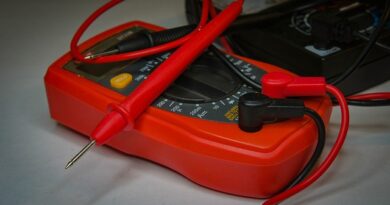Electrical Testing in Agra
Introduction
When it comes to electrical systems, safety and efficiency are paramount. Electrical testing plays a crucial role in ensuring that electrical installations and equipment are functioning optimally and adhering to safety standards. In Agra, a city known for its rich history and vibrant culture, electrical testing is of utmost importance to safeguard residents and businesses. In this article, we will delve into the world of electrical testing in Agra, exploring its significance, the procedures involved, and the role of experts in performing these tests.
Electrical Testing in Agra: An Overview
Electrical testing involves a series of assessments and inspections conducted on electrical components, systems, and installations. The goal is to identify potential faults, hazards, and inefficiencies that may compromise the safety and performance of the electrical setup. By adhering to comprehensive testing practices, experts can detect issues early on and implement necessary corrections, reducing the risk of accidents and costly breakdowns.
The Importance of Electrical Testing
Electrical testing serves multiple essential purposes, including:
1. Ensuring Safety
Safety is paramount when it comes to electrical systems. Faulty electrical setups can lead to electrical shocks, fires, and other hazards. Through meticulous testing, experts can identify faulty wiring, improper grounding, and other issues that could pose significant risks.
2. Enhancing Efficiency
Efficient electrical systems not only reduce energy consumption but also lead to cost savings. Testing helps detect energy wastage, power fluctuations, and voltage irregularities, allowing for timely optimization.
3. Complying with Regulations
In Agra, like many other places, electrical installations must meet specific regulations and codes. Electrical testing helps ensure compliance with these standards, avoiding legal complications and penalties.
4. Preventive Maintenance
Regular electrical testing serves as preventive maintenance, identifying potential problems before they escalate into major issues. This proactive approach saves time, money, and resources.
Types of Electrical Testing
Electrical testing comprises various specialized assessments, such as:
1. Insulation Resistance Test
This test measures the resistance of electrical insulation to detect any degradation or damage. It is crucial in identifying potential short-circuit risks.
2. Earth Resistance Test
The earth resistance test evaluates the resistance between electrical installations and the ground. Proper grounding is essential for safety and efficient electrical systems.
3. Load Testing
Load testing assesses the performance of electrical systems under varying loads, ensuring they can handle their designated capacities.
4. Power Quality Analysis
Power quality analysis involves examining voltage fluctuations and harmonics to maintain the stability and reliability of electrical systems.
Performing Electrical Testing
Electrical testing requires expertise and precision. Here’s how the process is typically conducted:
1. Initial Inspection
Before conducting tests, experts perform a thorough visual inspection of the electrical setup. They check for loose connections, signs of wear, and potential safety hazards.
2. Test Equipment Setup
Once the initial inspection is complete, experts set up the necessary testing equipment, ensuring accurate readings.
3. Conducting Tests
Specialized tests, such as insulation resistance tests, earth resistance tests, and load tests, are performed to assess different aspects of the electrical system.
4. Data Analysis
After conducting tests, experts analyze the data to identify potential issues and areas for improvement.
5. Recommendations and Corrective Actions
Based on the test results, experts provide recommendations for necessary corrective actions. These may include repairs, upgrades, or adjustments to ensure optimal performance.
Frequently Asked Questions (FAQs)
Is electrical testing mandatory in Agra?
Yes, electrical testing is mandatory in Agra, as it is in most places, to ensure the safety and efficiency of electrical systems.
How often should electrical testing be performed?
For residential properties, electrical testing is recommended every 5 years. For commercial and industrial establishments, it should be done more frequently, ideally every 1 to 3 years.
Can I conduct electrical testing myself?
It is not advisable for untrained individuals to conduct electrical testing due to the risks involved. It is best to hire qualified electrical testing professionals.
How long does electrical testing typically take?
The duration of electrical testing depends on the size and complexity of the electrical system. It can take a few hours to several days for a comprehensive assessment.
What should I do if electrical testing reveals issues?
If electrical testing uncovers any problems, it is crucial to address them promptly. Contact a qualified electrician to perform the necessary repairs or adjustments.
Can electrical testing help save on energy bills?
Yes, by identifying and rectifying energy wastage, electrical testing can lead to significant energy savings and lower utility bills.
Conclusion
Electrical testing in Agra is a critical aspect of ensuring safety, efficiency, and compliance with regulations. By entrusting this task to experienced professionals, individuals and businesses can rest assured that their electrical systems are in top-notch condition. Regular testing not only prevents accidents but also optimizes energy usage and enhances the longevity of electrical installations. Prioritizing electrical testing is a smart investment that yields long-term benefits.




